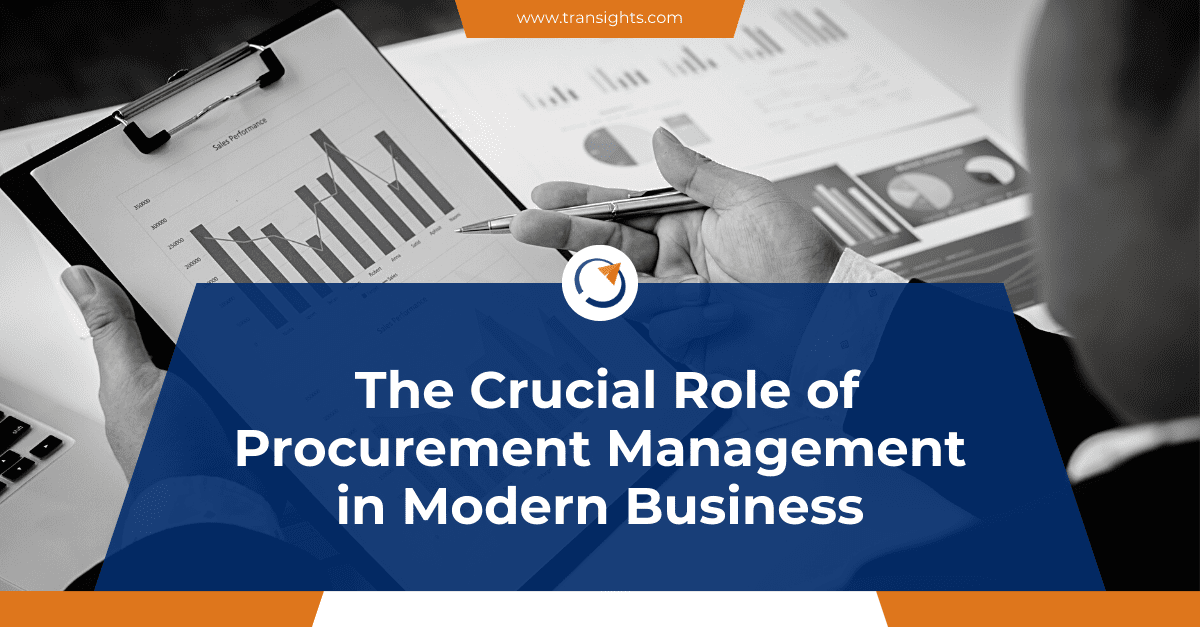
In the dynamic landscape of modern business, effective procurement management has emerged as a cornerstone for organizational success. Procurement, traditionally seen as a back-office function, has evolved into a strategic driver that influences an organization's competitiveness, cost structure, and overall sustainability. This article explores the key components of procurement management, its strategic significance, and best practices that organizations can adopt to optimize their procurement processes.
Understanding Procurement Management:
Procurement management involves the process of acquiring goods, services, or works from an external source. It encompasses a range of activities, from identifying the need for a product or service to negotiating contracts and managing supplier relationships. The goal of procurement management is to obtain the right goods or services, at the right price, from the right suppliers, at the right time.
Strategic Significance of Procurement:
Strategic Significance of Procurement:
Cost Savings: A well-executed procurement strategy can lead to significant cost savings. Through effective negotiation, bulk purchasing, and strategic sourcing, organizations can secure favorable terms and prices, ultimately impacting the bottom line.
Risk Management: Procurement management plays a crucial role in identifying and mitigating risks associated with the supply chain. This includes assessing the financial stability of suppliers, monitoring geopolitical factors, and implementing contingency plans to ensure business continuity.
Supplier Collaboration: Establishing strong relationships with suppliers fosters collaboration and innovation. By working closely with key suppliers, organizations can gain access to new technologies, market insights, and improved product quality.
Key Components of Procurement Management:
Key Components of Procurement Management:
Needs Assessment: Clearly defining the requirements for goods or services is the first step in procurement management. This involves collaboration between various departments to determine the specifications, quantity, and quality needed.
Supplier Identification and Selection: Identifying potential suppliers and selecting the right partners is critical. Factors such as cost, reliability, and ethical considerations should be weighed during the supplier evaluation process.
Contract Negotiation: Negotiating favorable terms and conditions is an essential aspect of procurement management. This includes price negotiation, delivery schedules, and performance metrics to ensure alignment with organizational goals.
Order Processing and Fulfillment: Efficient order processing ensures timely delivery of goods or services. Procurement teams must monitor the fulfillment process to address any issues that may arise and maintain a smooth supply chain.
Supplier Relationship Management (SRM): Cultivating strong relationships with suppliers is an ongoing process. Effective SRM involves communication, collaboration, and continuous improvement initiatives to optimize the partnership.
Best Practices in Procurement Management:
Best Practices in Procurement Management:
Digital Transformation: Embracing technology, such as procurement software and automation tools, enhances efficiency and transparency in the procurement process. This allows organizations to make data-driven decisions and streamline operations.
Sustainable Procurement: Incorporating sustainability into procurement practices is becoming increasingly important. Organizations are recognizing the value of environmentally and socially responsible sourcing to meet stakeholder expectations and reduce environmental impact.
Continuous Improvement: Regularly evaluating and improving procurement processes is essential for staying competitive. This involves analyzing performance metrics, gathering feedback, and implementing changes to enhance overall efficiency.
Conclusion:
Procurement management is no longer confined to merely securing goods and services; it has evolved into a strategic function that influences an organization's competitiveness and sustainability. By adopting best practices, leveraging technology, and embracing sustainability, organizations can unlock the full potential of procurement management, driving success in the ever-evolving business landscape.

